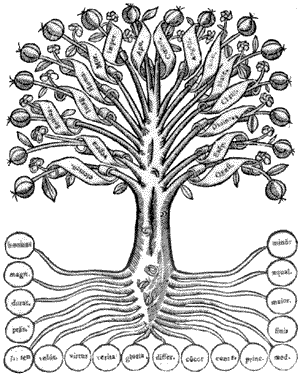Zwiefalt, duplicidade, dobro, twofold
The twofold is the presence of what is present (the being of beings). A human being comes to be human by corresponding (entsprechen) to the twofold and bearing witness to it. What carries the human being’s relation to the twofold is language (GA12:116, 128). The history of being is the destiny of this twofold: “the unfolding, unconcealing affordance of the cleared presencing, in which what is present appears” (GA7:244). Because the twofold coincides with the unfolding of the clearing in which presence and what is present can be distinguished, it cannot be experienced immediately, least of all through a representation of the difference between being and beings (GA12:119ff, 128f). Thoughtfully saying and corresponding to the twofold allows this process of being present and the presence itself to lie before the thinker, something that happens only on the path of thinking called for by aletheia. By contrast, in their everyday way of taking things up, mortals cling to what is unfolded and what, so unfolded, immediately puts demands on them: “what is present without regard for its presence” (GA7:246). (DAHLSTROM)
VIDE: Zwiefalt
dobra
pli
daulity
NOTE DU TRADUCTEUR: 1. Zwiefalt, le pli en deux. C’est l’être en tant que double (être et étant), ouvrable, par opposition à das Einfache, « le simple », l’unité en tant qu’elle ne s’ouvre ni ne se dédouble. Il sera question plus loin assez longuement, et de la Simplicité (pp. 176 179 et n. 5 de la p. 176) et du Pli (pp. 289 309). (GA7 89)
NT (fr): Zwiefalt, a dobra em dois. É o ser enquanto duplo (ser e ente), abertal, por oposição a das Einfache, “o simples”, a unidade enquanto ela não se abre nem se desdobra. Questão tratada por Heidegger ao falar da simplicidade e e da dobra em Ensaios e Conferências. (GA7)
